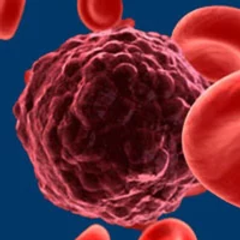
Dr. Shah on Shortcomings With BTK Inhibitors in High-Risk MCL
Bijal Shah, MD, MS, discusses shortcomings with BTK inhibitors in high-risk mantle cell lymphoma.
Bijal Shah, MD, MS, associate member, Department of Malignant Hematology, Moffitt Cancer Center, discusses shortcomings with BTK inhibitors in high-risk mantle cell lymphoma (MCL).
Although oral BTK inhibitors, such as ibrutinib (Imbruvica), acalabrutinib (Calquence), and zanubrutinib (Brukinsa), have transformed the treatment paradigm of MCL, some patients with high-risk disease do not respond to these agents, says Shah. In addition, these patients are unlikely to respond to chemotherapy, Shah explains.
High-risk MCL is often characterized by p53 mutations, high Ki-67 expression over 50%, and blastoid or pleomorphic morphology, Shah says. As BTK inhibitors and chemotherapy are not suitable treatment options for this patient population, novel therapies and combinations strategies are needed, concludes Shah.










































